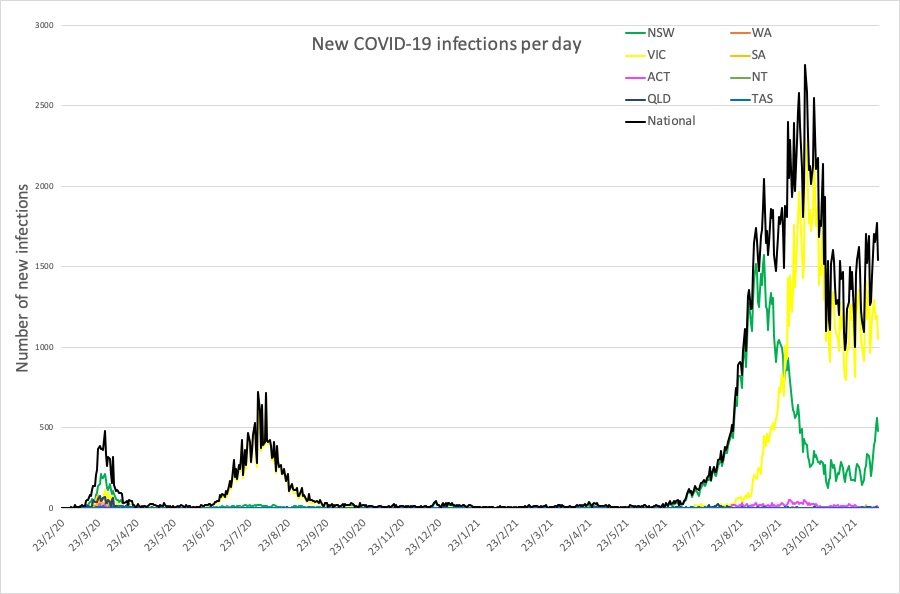ATAGI has advised shortening the time to booster dose from six to five months after primary vaccination.
Welcome to The Medical Republic’s Covid Catch-Up.
It’s the latest covid-19 news in one convenient post. Email bianca@biancanogrady.com with tips, comments or suggestions.
13 December
- Children aged 5-11 in line for covid vaccines from early January 2022.
- Booster timing brought forward to five months as Omicron threatens.
- Australian human biosecurity emergency period extended again to February 2022.
- Anorexia diagnoses and hospitalisations surged in Canada during first wave.
- Latest covid infection numbers from around Australia.
Children aged 5-11 will start being vaccinated against covid from 10 January 2022, as ATAGI gives the green-light to this next phase of the vaccine rollout.
The approval was based on evidence not only that covid vaccines are safe and effective in this age group, but also that vaccinating children reduces the overall community spread of covid.
The recommended timing of the third booster dose of covid vaccine has also been brought forward to five months after the second primary dose, based on new advice from ATAGI.
Faced with growing evidence suggesting that the Omicron variant is less susceptible to vaccine-derived immunity, ATAGI has recommended earlier boosters to increase immunity against both Delta and Omicron.
However the group noted that there is not yet clear evidence about the possible severity of Omicron.
Meanwhile, Moderna’s Spikevax has received provisional approval from the Therapeutic Goods Administration as a booster vaccine against covid for people aged 18 years and older.
The booster dose is half the recommended dose for the primary vaccination, and can be given regardless of what vaccine was used for the primary course. ATAGI now says that both the Pfizer and Moderna vaccines are considered equally effective as boosters.
The US Centers for Disease Control has gone one step further and is now recommending Pfizer boosters for 16 and 17-year-olds at six months after their primary vaccination course.
Federal Health Minister Greg Hunt has extended the human biosecurity emergency period another two months to 17 February 2022, which maintains the existing restrictions around inbound and outbound international travel and cruise ships in Australian waters.
Diagnosis and hospitalisation rates for anorexia nervosa in children and adolescents increased significantly in Canada during the first wave of the pandemic, a study has found.
A paper published in JAMA compared the number of new diagnoses of anorexia nervosa in the five years before the pandemic, and during the first wave of the pandemic at six Canadian institutions.
This revealed a sharp increase in diagnoses in the first wave, from a fairly stable mean of 24 new cases a month over the previous five years to around 40 per month.
Those diagnosed during the pandemic had also had a shorter duration of symptoms, had lost a higher mean percentage of body weight, and presented with more profound bradycardia.
The study also showed an increase in hospitalisation rates, from 7.5 per month to 20 per month, with a greater proportion of patients meeting the criteria for hospital admission during the pandemic than before it.
Here are the latest covid infection numbers from around Australia to 9pm Sunday:
National – 228,930 with 2104 deaths
ACT – 2197 (1)
NSW – 85,924 (477)
NT – 311 (5)
QLD – 2168 (1)
SA – 1008 (10)
TAS – 240 (0)
VIC – 135,959 (1048)
WA – 1123 (0)



